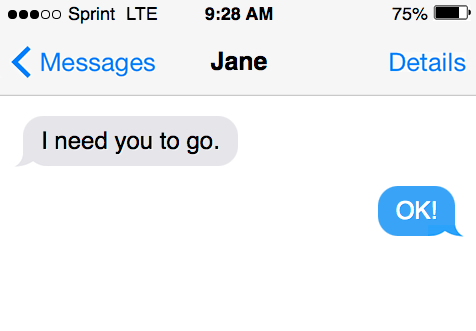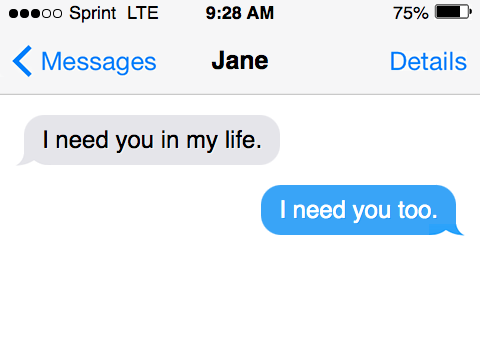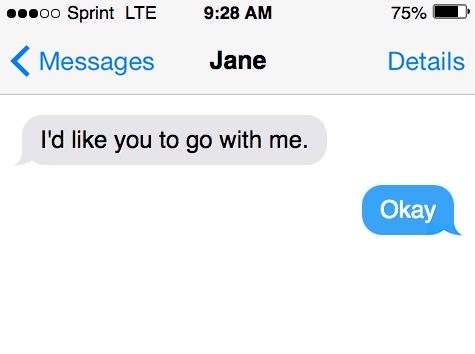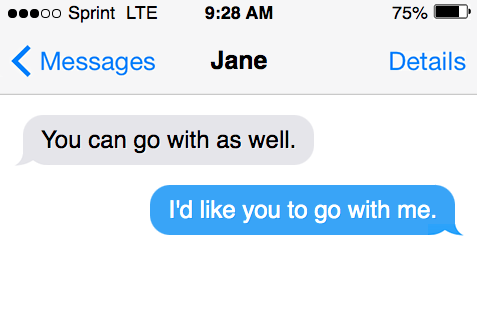Is it you too or you to? When writing and saying “too” with the word “you” in front of it, does the word “too” get one “o” letter or two?
Understanding “to” vs. “too”
It’s critical to understand the difference between “to” and “too.” The word “to” is a preposition with several meanings. Typically, it means “toward” or “until.” For example, “I need to get the car.” In this sentence, the word “to” indicates “toward.” Or to break down the sentence, “I need to get toward the car.”
The word “too” is an adverb that means “excessively” or “also.” For example, “I need to get the car, too.” In this sentence, the word “too” indicates that the person will join someone in getting the car.
The two words mean entirely different meanings. “To” is a preposition and part of an infinitive verb in American English.

“Two” as a word also sounds very similar to the words “to” and “too.” Those are called pronunciation homophones. And can get confused when going through the American English language learning process.
Remember, “too” means to join or accompany. It can mean “also” or something to an excessive degree. While “to” is an infinitive verb, meaning to “toward” or “continue.”
Sample sentences
“I want to get to the park so we can have fun today.” (The word “to” getting used as “toward.”)
“I want to go to the park, too.” (The word “too” means “also.”)
“I’m glad to help.” (The word “to” is getting used a preposition.)

When to use “you too”
Common grammar mistakes for the phrase “you too” typically include not adding the second letter “o” to the word “too.” To build a correct sentence using the word “too,” it’s important to remember that it typically can get replaced with the words “also,” “very,” or “excessively.”
For example, “I want you to go to the park, too.”
“You too” as a phrase should get used any time the writer or person wants to say “also.” If they want someone to have a good day, also. Or want someone to head in the right direction, also. A comma can come before the word “too.” For example, “I’d love for you to come, too.”
In this sentence, the person is agreeing or saying, “also.”
Examples
Incorrect example: “I’d truly enjoy it if someone from the HR department could accompany me to the trade show to.”
Correct example: “I’d truly enjoy it if someone from the HR department could accompany me to the trade show too.”

When to use “you to”
To make sense of where to use the phrase “you to,” it’s important to consider the entire structure of the sentence. To write “you to” in a sentence correctly, it’s important to remember the meaning of the word “to.” It means to continue or forward.
For example, “I want you to go to school.” In this sentence, a parent could be asking their child to go to school. They are asking them to move forward in the entire sentence.
Examples
Incorrect example: “I want you too go to the park and have fun playing with your friends.”
Correct example: “I want you to go to the park and have fun playing with your friends.”
Different meanings
“You too” and “you to” mean entirely different things. It’s important to use the correct phrase when constructing a sentence. While “too” and “to” sound the same and are pronounced the same (as well as the number “two” in American English), each word has entirely different definitions.
How to remember to use “you too” or “you to”
An easy way to remember if a sentence should have “too” or “to” is to remember the words “also.” If constructing a sentence and using the word “also” in replace of “too” makes sense, then it’s the correct phrase.
If replacing “to” with the word “also” looks wrong, then it’s the incorrect phrase to use.

Here are more examples:
Incorrect using “also” in replace of “to”: I would like also head to the grocery store and get us hot sauce for dinner.
Correct using “also” in replace of “to”: I would like to head to the grocery store and get us hot sauce for dinner. Would you like to come, also?
The second sentence uses “also” to replace “too” correctly.
Common phrases
Commonly confused words and phrases in American English.
I love you to or I love you too
Is it “I love you to” or “I love you too?” When writing “I love you too,” it’s important to remember that the word “too” is acting as a replacement for “also.”
The correct phrase is to say, “I love you too.” Because someone is replying and agreeing that they share their love.
Less common is to say the phrase, “I’d love you to.” This phrase is usually joining another statement. For example, “I’d love for you to join us.”

I’ll see you to or I’ll see you too
Is it “I’ll see you to” or “I’ll see you too?” The phrase “I’ll see you too” is less common when talking and writing in English.
Both are correct. Although, the context of the sentence is very important.
For example, “I’ll see you to your car.” This is a correct sentence because the comment is about accompanying someone to their car. Using the word “to” as another word for forward.
“I’ll see you too” can appear in sentences. Usually as a response. For example, “I know that you’ll see me in the crowd. And I’ll see you too.”
If you need me to or if you need me too
Is it “if you need me to” or “if you need me too?” Both sentences are correct. And share a similar sentiment as “I’ll see you to.”
Here is an example of “if you need me to” getting used in a sentence, “If you need me to go to the grocery store, I can go.” This sentence is correct because it is using “to” in replace of the word forward.
Alternatively, “if you need me too” is far less common to see in articles and writing. It is usually used as a type of response. For example, “Joe is going with you but I can go as well if you need me too?” This sentence is using “too” to say “also.”
What are you up to or what are you up too
“What are you up to?” is a type of conversation starter. The correct phrase is “What are you to?” and the incorrect one is “What are you up too?”
The reason it is incorrect is that the word “too” is saying also. The incorrect sentence would look like this, “What are you up also?”
What are you referring to or what are you referring too
“What are you referring to” is the correct sentence. “What are you referring too” is incorrect.
A sentence example that shows the correct grammar is, “I don’t know what happened on the playground. What I know is that someone asked another person for money. What are you referring to?”
Too old or to old
“Too old” or “to old?” The correct way to say that someone is “too old” is with two “o” letters in the word. The reason for this is that the word “too” is getting used in replace of the word excessive.
For example, “I am excessively old for this.” The sentence example is another way of saying, “I am too old for this.”
Sources
- To Definition & Meaning – Merriam-Webster
- Too Definition & Meaning – Merriam-Webster
- What’s the Difference Between To and Too? – YourDictionary
- Proposition Definition & Meaning – Merriam-Webster
- Infinitive Verb – YourDictionary
- Infinitives // Purdue Writing Lab
Inside this article
Fact checked:
Content is rigorously reviewed by a team of qualified and experienced fact checkers. Fact checkers review articles for factual accuracy, relevance, and timeliness. Learn more.
Core lessons
Glossary
- Abstract Noun
- Accusative Case
- Anecdote
- Antonym
- Active Sentence
- Adverb
- Adjective
- Allegory
- Alliteration
- Adjective Clause
- Adjective Phrase
- Ampersand
- Anastrophe
- Adverbial Clause
- Appositive Phrase
- Clause
- Compound Adjective
- Complex Sentence
- Compound Words
- Compound Predicate
- Common Noun
- Comparative Adjective
- Comparative and Superlative
- Compound Noun
- Compound Subject
- Compound Sentence
- Copular Verb
- Collective Noun
- Colloquialism
- Conciseness
- Consonance
- Conditional
- Concrete Noun
- Conjunction
- Conjugation
- Conditional Sentence
- Comma Splice
- Correlative Conjunction
- Coordinating Conjunction
- Coordinate Adjective
- Cumulative Adjective
- Dative Case
- Determiner
- Declarative Sentence
- Declarative Statement
- Direct Object Pronoun
- Direct Object
- Diction
- Diphthong
- Dangling Modifier
- Demonstrative Pronoun
- Demonstrative Adjective
- Direct Characterization
- Definite Article
- Doublespeak
- False Dilemma Fallacy
- Future Perfect Progressive
- Future Simple
- Future Perfect Continuous
- Future Perfect
- First Conditional
- Irregular Adjective
- Irregular Verb
- Imperative Sentence
- Indefinite Article
- Intransitive Verb
- Introductory Phrase
- Indefinite Pronoun
- Indirect Characterization
- Interrogative Sentence
- Intensive Pronoun
- Inanimate Object
- Indefinite Tense
- Infinitive Phrase
- Interjection
- Intensifier
- Infinitive
- Indicative Mood
- Participle
- Parallelism
- Prepositional Phrase
- Past Simple Tense
- Past Continuous Tense
- Past Perfect Tense
- Past Progressive Tense
- Present Simple Tense
- Present Perfect Tense
- Personal Pronoun
- Personification
- Persuasive Writing
- Parallel Structure
- Phrasal Verb
- Predicate Adjective
- Predicate Nominative
- Phonetic Language
- Plural Noun
- Punctuation
- Punctuation Marks
- Preposition
- Preposition of Place
- Parts of Speech
- Possessive Adjective
- Possessive Determiner
- Possessive Case
- Possessive Noun
- Proper Adjective
- Proper Noun
- Present Participle
- Prefix
- Predicate



